

HEALTH
NHS in Crisis: Drug Prices Soar as Companies Exit UK Following Trump Pressure
Published
1 month agoon
By
OBS
The NHS is facing a “critical threat” from drug price hikes as pharmaceutical companies bow to pressure from Donald Trump, experts have warned.
The US president has announced a fresh round of tariffs on pharmaceutical firms, with 100 per cent tariffs on branded medicines from October 1.
This means medicines produced outside the US will face sky-high import charges – unless a company has invested in new factories stateside, but there is no word yet on whether the UK will get any preferential rate.
The move presents a threat to the UK’s drug industry, which is the country’s second largest exporter to the US, selling £7bn of goods across the pond last year.
It comes after some firms already announced price hikes on medicines sold in the UK, from schizophrenia medication to weight loss jabs, echoing Mr Trump’s demands that other countries should pay higher prices for US medicines so that US consumers can pay less.
But Lib Dem peer Lord Paul Scriven, co-chair of the all-party parliamentary group on pharmacy, warned that price rises are a “critical threat” to the NHS, driven by “ridiculous pressures from President Trump”.
He told The Independent: “President Trump’s policy is based on cheap transactional economics and not about improving health.
“I am very concerned about the short-term and longer-term implications of this trend for UK patients.”
Nearly £2bn of investment into UK pharmaceutical research has also been slashed or paused in the lead-up to Mr Trump’s announcement by companies including Astrazeneca, Eli Lilly and MSD (the global pharma giant known as “Merck” in the US); all of whom have pledged billions into new factories in the US.
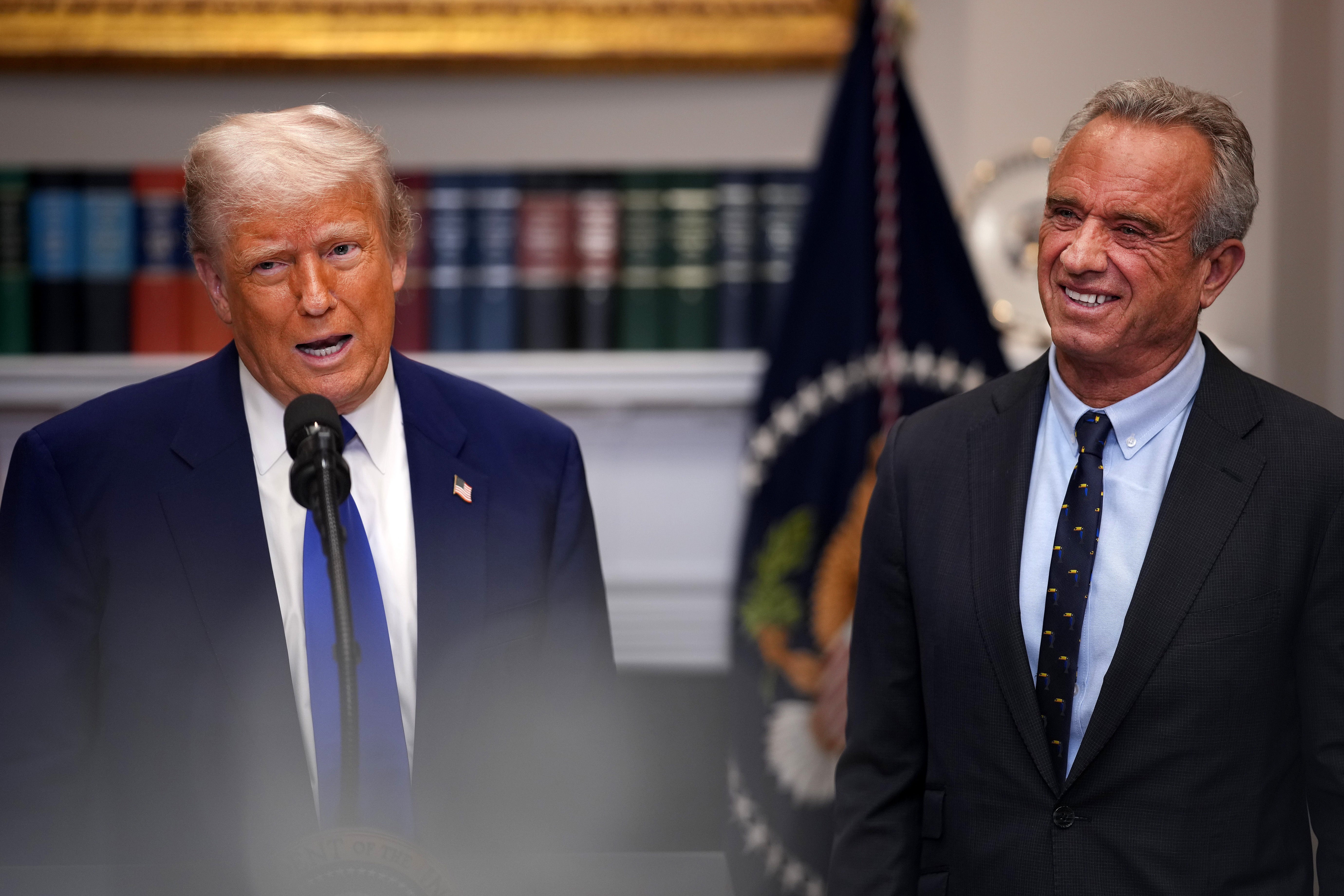
The standoff between pharmaceutical companies and the UK government comes after Mr Trump said drug companies were “effectively subsidising socialism abroad with skyrocketing prices at home” by charging lower prices overseas.
But even as US drug companies boosted prices in the UK, there is nothing yet to show that costs will drop for buyers in the US.
Professor Claire Anderson, president of the Royal Pharmaceutical Society, said “patients should not have to pay the price in a global trade war”, but the UK’s science minister, Lord Patrick Vallance, has warned that drug price increases “are going to be a necessary part” of solving the exodus of pharmaceutical companies from the UK.
As prices rise, it is unclear whether the Treasury will increase the health budget to pay for more expensive medicines or whether the NHS will be forced to reallocate from its already-tight budget.
The NHS has already been spending an increasing amount on medicines, with prescribing costs at £19.9bn last year, up 16 per cent from 2021/2.
Health Secretary Wes Streeting has admitted the issue is a “live conversation”, suggesting that the government may bow to pressure on high prices.
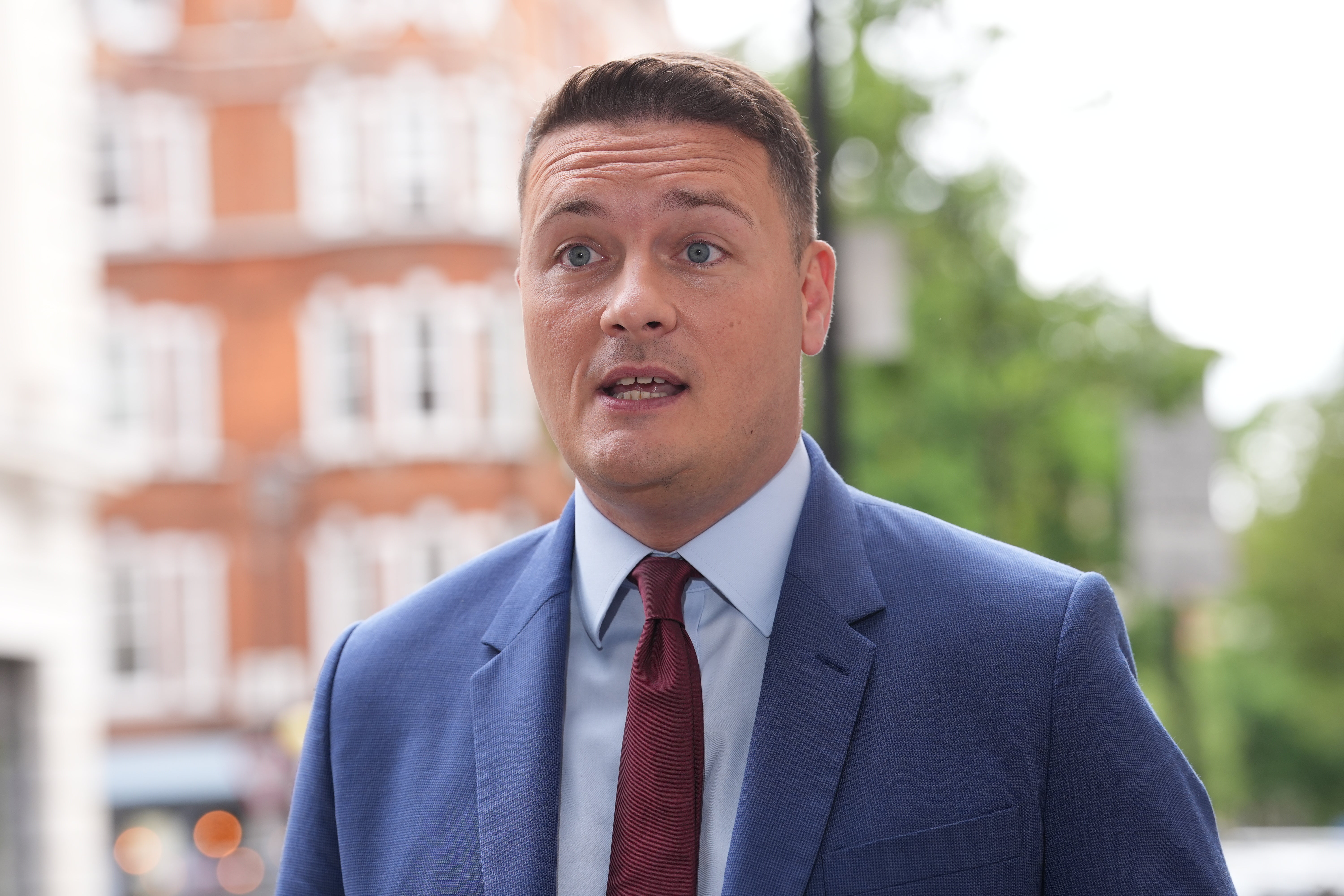
If the NHS is unable to pay higher prices or negotiate reasonable deals with pharmaceutical companies, the UK could be at risk of medicine shortages and supply chain issues, particularly as manufacturing moves further afield. That could be “devastating” for patients, Henry Gregg, head of the National Pharmacy Association (NPA), told The Independent.
“It remains to be seen what impact this could have on patients and pharmacies, who are at the sharp end of a very complicated and potentially vulnerable supply chain, but we need reassurance that steps are being made to protect them,” he said.
US demands higher prices for medicine to end ‘global freeloading’
Multinational drug companies such as Merck have faced direct calls to boost prices in the UK and abroad from President Trump.
In May, Mr Trump signed an executive order calling for a “most favoured nation” pricing policy, which pushes pharmaceutical companies to raise the cost of medicines in other countries in order to cut them for US buyers.
This pressure is already spurring clear consequences in the UK.
Just this week, pharmaceutical giant Bristol Myers Squibb (BMS) said it would charge the UK at US rates for the schizophrenia drug Cobenfy – to the tune of approximately £16,800 a year.
It is the first time BMS has done so, with UK prices usually around half of US rates.
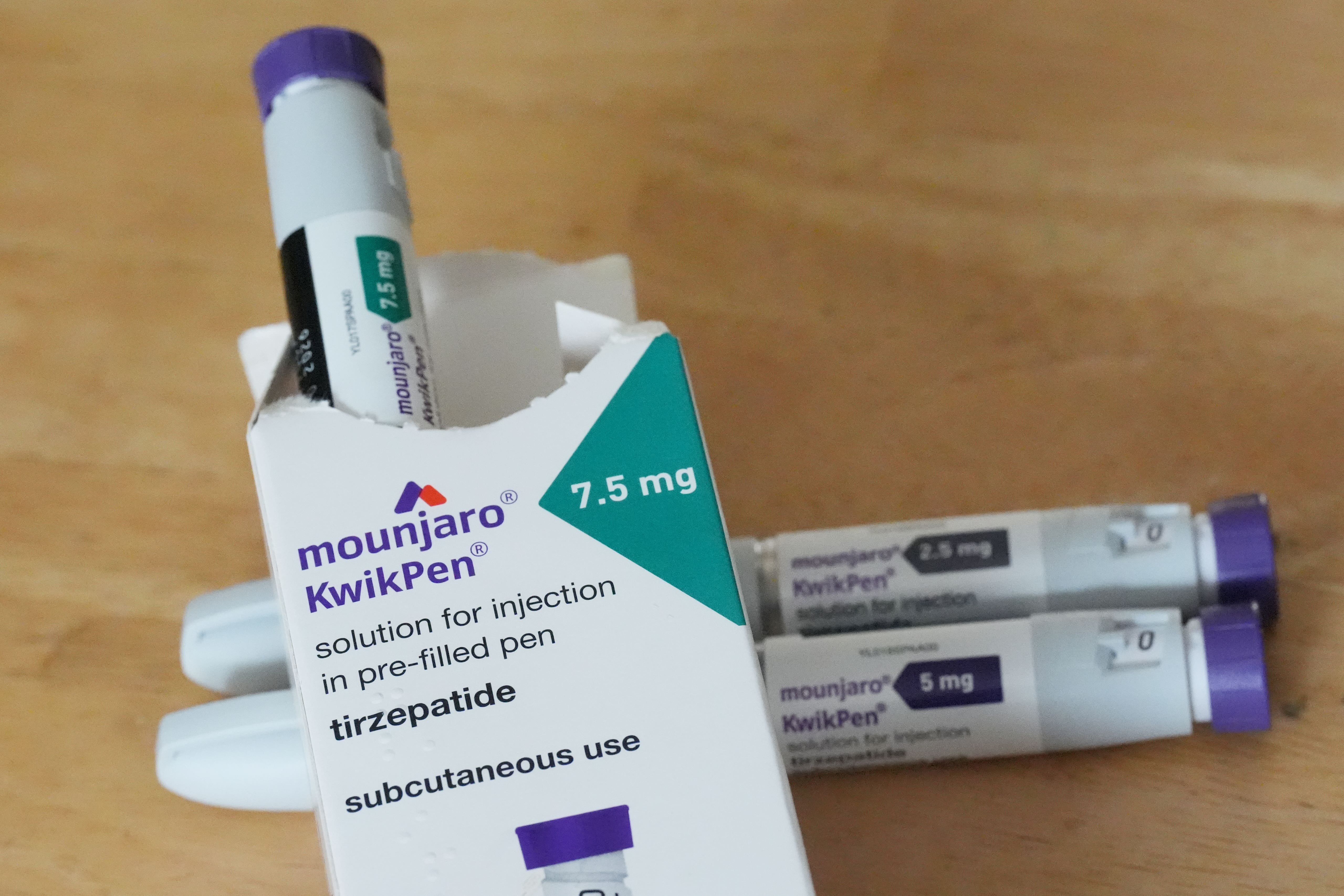
“We agree with the Trump administration that other countries need to pay their fair share,” said Adam Lenkowsky, BMS chief commercialisation officer.
And weight loss jab producer Eli Lilly has said it would increase the UK price of Mounjaro by as much as 170 per cent, after Mr Trump called out the UK for having low prices on “fat jabs”.
And a representative for Eli Lilly said it had paused plans for its lab in London, as the company was “awaiting more clarity around the UK life sciences environment”.
In both cases, though, the companies have yet to announce equivalent price cuts in the US, suggesting that Trump’s threats to pharmaceutical companies may just bring prices up worldwide.
The US has the highest drug prices in the world, with prices on branded medicine being 3.8 times higher on average than in the UK, according to a 2022 study.
But Mr Trump appears to be more focused on increasing prices abroad to stop “global freeloading” than cutting prices at home.
“While it remains to be seen how much of the pharmaceutical sector would be affected, the proposed tariffs would undoubtedly increase costs for US healthcare,” said Mark Samuels, head of the British Generic Manufacturers Association.
In general, pharmaceutical companies are able to charge more in insurance-based health systems such as the US and France, while countries like the UK and Canada which have public health systems, demand lower prices from suppliers.
“The NHS needs to deliver for patients and for taxpayers. As the largest single purchaser of medicines in Europe, this gives the NHS tremendous buying power,” said Mr Samuels.
Losing thousands of jobs in the economy
In addition to the standoff over prices, there is the issue of research and manufacturing.
The pharmaceutical industry contributes over £17.6bn in gross value to the UK, with £45bn through research and development, according to the Association of British Pharmaceutical Industry (ABPI).
“This pressure isn’t just about current prices; it’s about the future of our healthcare. We are witnessing a clear pivot away from the UK,” said Lord Scriven, adding that the country is at “risk of being left behind”.
“Tariffs will put further pressure on drug manufacturers to move away research and development of drugs from the UK, [which could have] a negative impact on pricing and access to new drugs for the NHS,” he warned.
President Trump has explicitly called for pharmaceutical companies to keep their industry within the US, a move which could deter businesses from manufacturing in the UK.
Already, Merck has cancelled its £1bn investment plans for a London research facility and scrapped existing projects, both of which had been in progress and seen sunk costs.
And AstraZeneca, Britain’s biggest company, which was at the forefront of Covid-19 vaccine development, recently paused plans for a £200m research facility in Cambridge, after announcing £37bn in investment in the US for research and development.
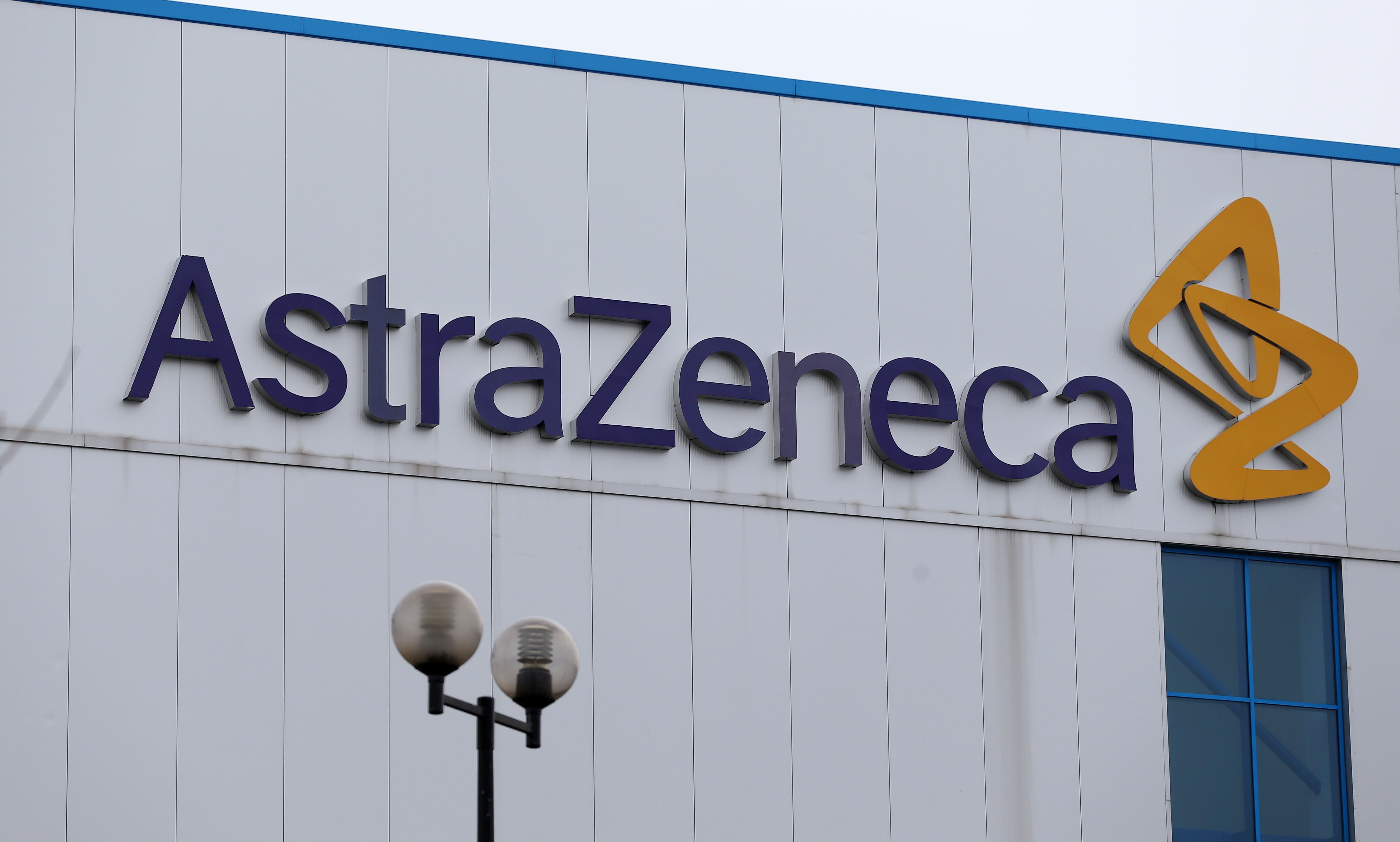
Combined, the cancelled or paused investments could put nearly 2,000 future and current jobs at risk.
“We cannot allow economic stupidity from Donald Trump to dismantle the foundations of our health service, which has for decades ensured that UK patients have access to affordable, life-saving medicines,” Lord Scriven said.
“The health of patients and the integrity of the NHS itself depend on it.”
You may like
-


Latest Ukraine-Russia War Update: Trump Official Says Putin Will Pay the Price if Fighting Continues!
-


Study Reveals Mounjaro and Ozempic Demand Causing NHS Waiting List Delays!
-


Rangers in Crisis: Shocking Setback in Manager Search Leaves Fans Reeling!
-


Trump Claims Infantino Would Instantly Shift World Cup Matches at His Request – Find Out Why!
-


Trump Approves Secret CIA Missions in Venezuela as Military Considers Land Strikes!
-


Israel’s Knesset Names Trump as Middle East Peacemaker – But Here’s Why It’s Complicated!
HEALTH
Can’t Tell If It’s Covid or the Flu? Here Are the Key Symptoms You Must Recognize as Cases Surge!
Published
2 weeks agoon
October 16, 2025By
OBS
Health officials are warning of a seasonal surge in flu and Covid-19, with cases already starting to rise as autumn arrives.
But because the two viruses share many symptoms, it’s difficult to tell them apart.
When a sniffle seems to progress further than “just a cold”, it’s hard to know what it might be – but there are differences in how the viruses appear and the risks they pose.
Do I have Covid?
Covid-19 continues to cause serious illness, particularly among vulnerable groups. The virus is constantly evolving, with new variants spreading easily through coughs, sneezes or even conversation.
Vaccination campaigns each autumn continue to try to prevent hospitalisations and deaths.
The list of symptoms has shifted since 2020. Many people now experience cold-like symptoms, such as a runny nose, sore throat or blocked sinuses. But others still report fever or chills, a persistent cough, fatigue, headaches, shortness of breath, or a loss of taste and smell. Nausea and diarrhoea can also occur.
Doctors say a hoarse throat has become one of the hallmark features of the latest variants.
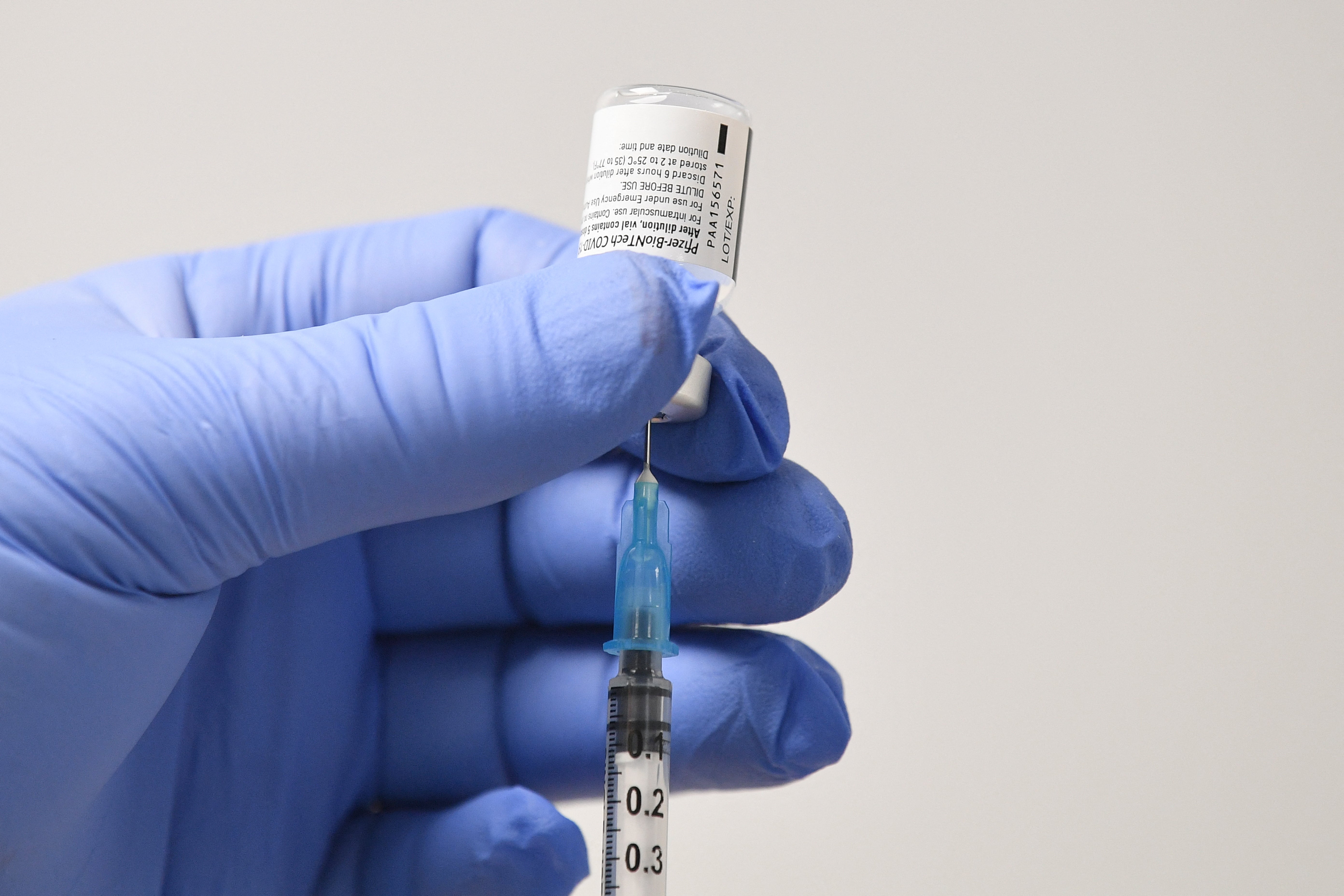
The latest strain, called Stratus, has two variants, XFG and XFG.3. Another recent strain, NB.1.8.1 nicknamed Nimbus, is also prevalent.
“Stratus is linked to hoarseness and fatigue, whereas Nimbus is associated with a ‘razor-blade’ sore throat and digestive symptoms like nausea and bloating,” explains Dr Bruno Silvester Lopes, lecturer in microbiology at Teesside University. “Both are highly transmissible but not more severe than previous variants.”
Despite accounting for a large proportion of new cases, experts are not concerned about the spread, noting it is normal for viruses to mutate and change.
Those aged 65 and over, care home residents, and people with underlying health problems are all entitled to the Covid-19 booster.
Do I have the flu?
Flu is a respiratory infection that strikes hardest in winter and can be far more debilitating than the common cold. While colds typically bring a runny nose, sneezing, watery eyes and mild throat irritation, flu tends to arrive suddenly with fever, aches and exhaustion.
Last winter alone, the flu sent more than 8,000 people to hospital. Over the past two years, at least 18,000 deaths in the UK have been linked to the virus. Children, older adults, people with long-term health problems and those with weakened immune systems face the highest risks.
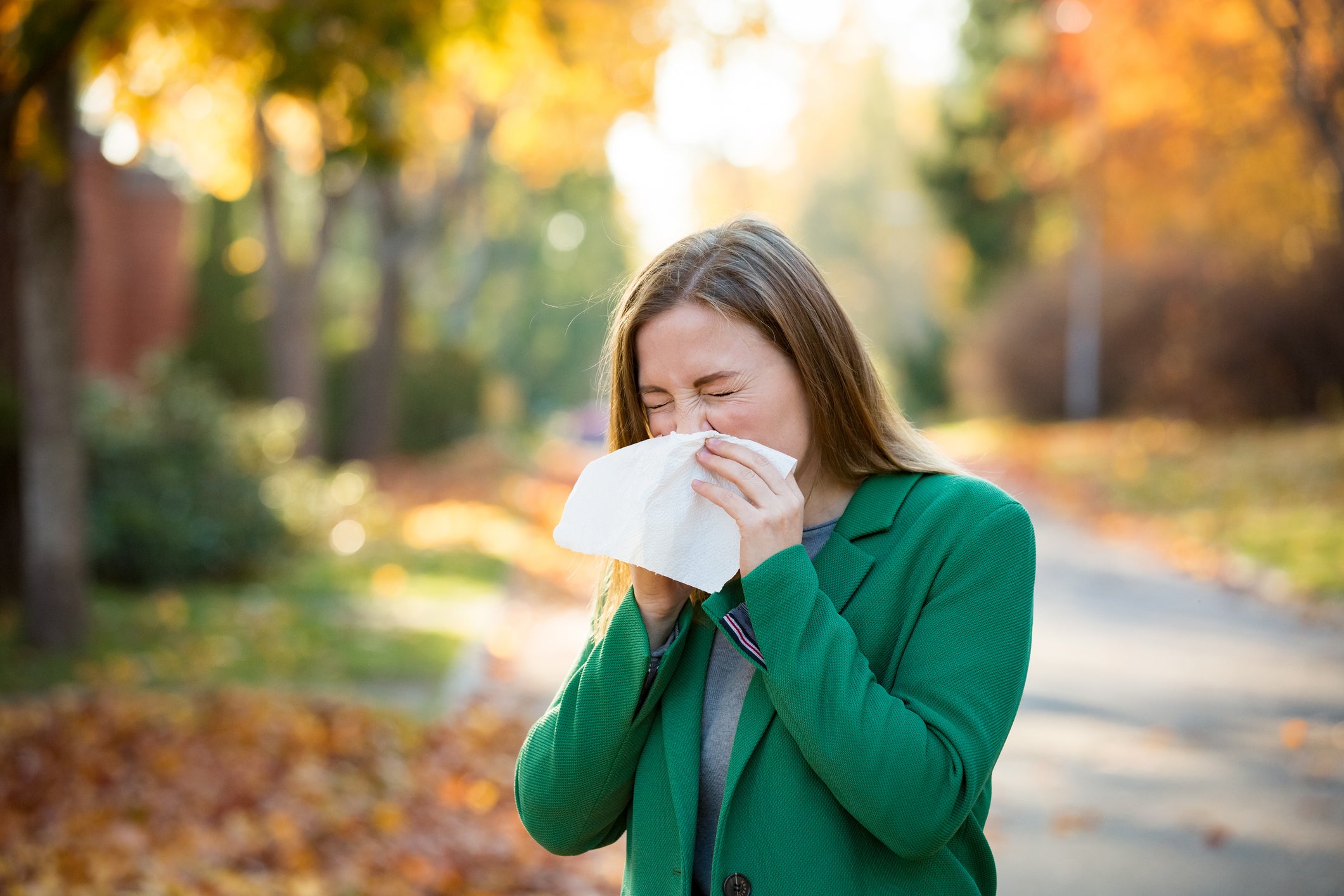
Vaccination remains the strongest defence. Research shows that last year’s jab prevented thousands of severe cases, cutting hospital admissions by almost a third among over-65s and by more than half among children aged two to 17.
This autumn, the flu vaccine is being offered free to those over 75, pregnant women, children aged 2 and 3 through their GP, and schoolchildren from reception to year 11 via nasal spray. Adults under 65 with certain health conditions are also eligible.
How to tell difference between Covid and a cold
Colds and Covid can be tricky to distinguish as many of their symptoms overlap.
“Both can give you a sore throat, runny or stuffy nose, sneezing, and coughing,” says Dr Chun Tang, a GP at Pall Mall Medical. “However, Covid can also cause fever, fatigue, muscle aches, and that telltale loss of taste or smell – although that’s less common with newer variants.
“Covid is also more likely to make you feel wiped out, like you’ve been hit by a truck, whereas a cold tends to stay in your head and chest.”
“Both spread mainly through droplets when someone coughs, sneezes, or even talks near you,” says Tang. “Covid, however, can also spread more easily through the air in tiny particles that linger, especially in crowded or poorly ventilated spaces.
“So, while a cold might need a bit of close contact to catch, Covid can sometimes sneak across the room if you’re unlucky.”
Are cases climbing now?
According to the UK Health Security Agency, levels of flu and Covid-19 are already on the rise running into winter, joining other seasonal bugs such as RSV and norovirus.
UKHSA reported an increase in the number of reported Covid diagnoses in its 9 October report, with the most prevalent strain noted as Stratus XFG. Flu activity was also increasing among young adults with a surge in emergency department attendances for flu-like illnesses.
Experts say the risk is highest during the colder months when viruses spread more easily indoors.
Officials are urging everyone eligible to take up their vaccines to reduce the strain on hospitals and protect the most vulnerable. Both flu and Covid-19 can be serious, but prevention and early awareness remain the best tools against them.
HEALTH
Shocking Recall: Grocery Store Taco Kits Contain Hot Chocolate Packets!
Published
2 weeks agoon
October 16, 2025By
OBS
The Giant Company is recalling its Giant and Martin’s-branded hard taco dinner kits after hot chocolate sachets were discovered inside the packages.
The mix-up, announced October 10, could pose a risk to consumers with milk allergies.
The recall affects the 9.4-ounce Giant/Martin’s Hard Taco Dinner Kit (UPC 068826757516) all lot and codes, with a best-by date of March 13, 2026.
Consumers with a milk allergy should not eat the kits. Anyone who purchased the affected product can return it to a nearby store with a receipt to receive a refund.
Milk allergy is a common food allergy in children, caused by cow’s milk or milk from other mammals, according to Mayo Clinic.
.jpg)
Reactions can occur soon after consumption and range from mild symptoms like hives, vomiting, and digestive issues to severe, life-threatening anaphylaxis.
The main treatment is avoiding milk and milk products. Most children outgrow the allergy, while others may need to avoid milk long-term.
Meanwhile, Sno Pac Foods, a Minnesota-based company, has issued a nationwide recall of its frozen spinach products due to potential contamination with Listeria monocytogenes, a bacterium that can cause serious infections.
The recall affects two products: Del Mar 35-pound Bulk Organic Frozen Spinach and Sno Pac 10-ounce Organic Frozen Cut Spinach. These products were distributed across various retail stores in the U.S. The recall was prompted after a bulk case of spinach from a supplier tested positive for the bacterium.
This same lot was used to repack the Sno Pac Organic Frozen Cut Spinach into 10-ounce bags. As a precaution, Sno Pac Foods has suspended production of these products while investigating the source of the contamination.
No illnesses have been reported in connection with the recalled products. However, Listeria monocytogenes poses a significant health risk, particularly to young children, the elderly, pregnant women, and individuals with weakened immune systems.
In healthy individuals, infection may cause short-term symptoms such as high fever, severe headache, stiffness, nausea, abdominal pain, and diarrhea. Pregnant women are especially vulnerable, as infection can lead to miscarriage or stillbirth.
HEALTH
Could Trump’s Meds Be Slowing Him Down? Expert Warns They Might Not Be Helping!
Published
2 weeks agoon
October 16, 2025By
OBS
An adviser to Health Secretary Robert F. Kennedy Jr. warned Wednesday that President Donald Trump may appear to be “slowing down” because of the medication he takes, as questions continue over the president’s mental and physical health.
In a speech to the European Parliament, Dr. Aseem Malhotra, a British cardiologist who advised the lobby group Make America Healthy Again, said that Trump, 79, may be suffering from fatigue due to his use of cholesterol medications, or statins, and aspirin.
“President Trump is taking statins; he’s on two cholesterol drugs… This man does not have any cardiovascular disease,” Malhotra said during a launch event for a new European health activism organization, Make Europe Healthy Again (MEHA).
“If you’re over 75 and have no cardiovascular disease, the benefit of statin is – are you ready? One in 446. You have to give the statin to 446 people to prevent one cardiovascular event,” he said. “In other words, no significant benefit.”
Malhotra, a vaccine skeptic whose anti-COVID shot and anti-statin views have been rebuked as misinformation by medical experts, has been a close ally to Kennedy.
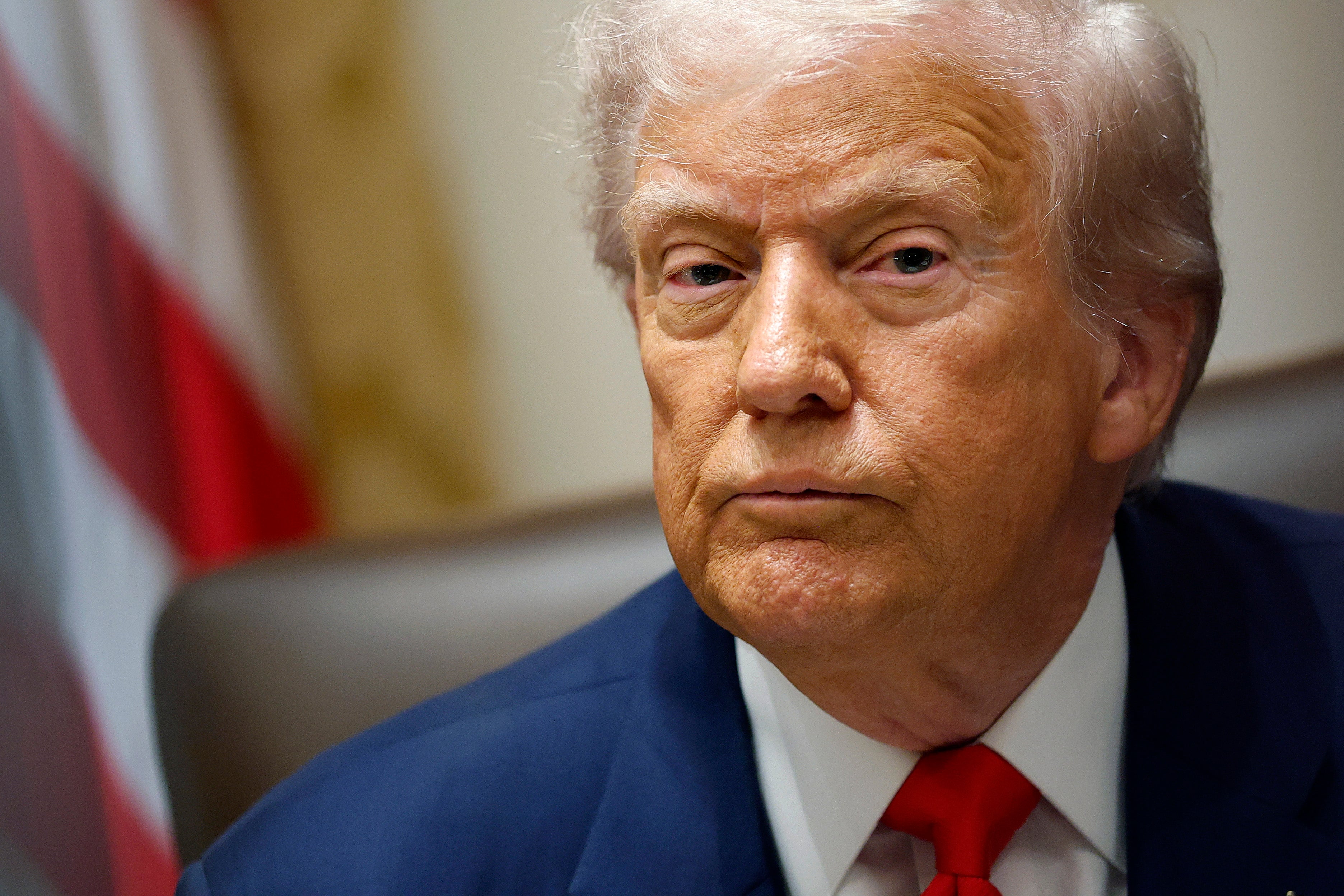
His comments come amid claims that the president may be showing signs of “cognitive decline,” due to mixing up names and other gaffes. Despite the speculation, the White House said last week that Trump was in “excellent overall health” following a “routine check-up” at Walter Reed Medical Center.
In addition to concerns about his mental acuity, Trump’s physical health has also come under question. The president has often been photographed with bruising on his right hand, raising concerns that he is suffering from some illness. The White House insists that this is a result of him shaking hands with a large number of people and his use of aspirin, which he takes as a cardiovascular protection.
White House officials revealed earlier this year that he had been diagnosed with chronic venous insufficiency, a non-life-threatening condition caused by the veins struggling to return blood to the heart. The condition is common for people over the age of 70.
During his remarks, Malhotra noted that cholesterol medication often comes with side effects, saying: “The most common ones are fatigue, muscle pain. It can cause brain fog.”
He added: “Now, I know that President Trump is a remarkable man for his age, but there have been reports – probably exaggerated by some sort of devious press for sure. But I know people who are close to him… and of course he is doing a tremendous job and maybe only sleeping four hours a night, and that may be part of it too, but it could also be that he’s slowing down a little bit because of his statins,” he continued.
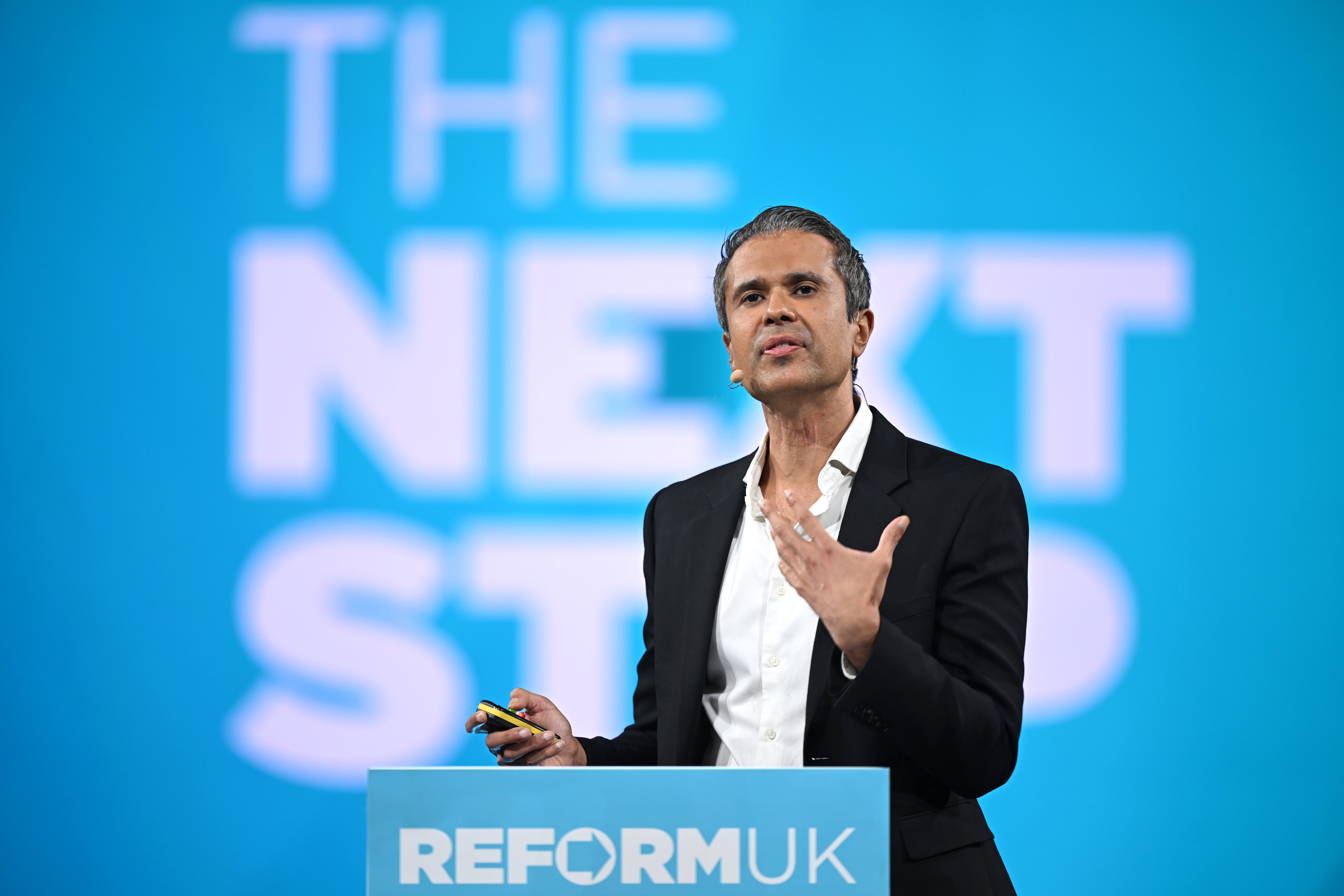
Malhotra then suggested that Trump go “off his statins, off his aspirin” and would be “feeling great” within a matter of weeks.
He was apparently so concerned about Trump taking the medications that he has reached out to several people close to the president to try and warn him against it, The Daily Beast reported Tuesday ahead of Malhotra’s public remarks.
In a statement to The Independent, the White House said: “President Trump is a champion-level golfer with the mental acuity and energy levels that most young people could not fathom having.”
“So-called medical ‘experts’, especially foreign ones with no relevance or involvement with the Administration, should stop beclowning themselves and marring their credibility by pitching their idiotic hot takes with Fake News outlets that have nothing better to cover,” White House spokesman Kush Desai said.

Along with Trump’s most recent gleaming health report, White House officials noted the president received a flu shot and an updated COVID-19 booster, which Malhotra called unnecessary.
“I think President Trump, I think he genuinely took the [COVID-19] booster, I don’t think that this is a front. I think he believes in what’s happening. He himself is also a victim of medical misinformation,” Malhotra said.
However, recent research shows that COVID shots protect against serious illness and death, especially for people over the age of 65. Researchers from the VA St. Louis Healthcare System looked at data from nearly 300,000 veterans and found that last season’s Covid vaccine reduced the risk of emergency room visits by 29 percent, hospitalizations by 39 percent and deaths by 64 percent for all ages, NBC News reports.
Combining all three outcomes, the shots’ overall effectiveness was 28 percent, making it similar to the flu shot, which ranges from 30 to 60 percent protective against severe illness or death.
An April health report also noted that Trump, who was the oldest person to ever take office in January at 78, was in “excellent” health.
The report also noted that Trump had high cholesterol that was being treated with the statin rosuvastatin and ezetimibe, a medication used to absorb cholesterol. He was also taking a low-dose aspirin as part of the treatment, his doctors said at the time.
While there is no evidence that statins alone cause dementia, the FDA added a safety warning to the medications in 2012 to warn of “notable, but ill-defined memory loss or impairment that was reversible upon discontinuation of statin therapy.”
Last month, Malhotra made headlines after suggesting – without evidence – that King Charles III may have gotten cancer because of the COVID-19 vaccine.
Categories
Top Tags
Related posts






















